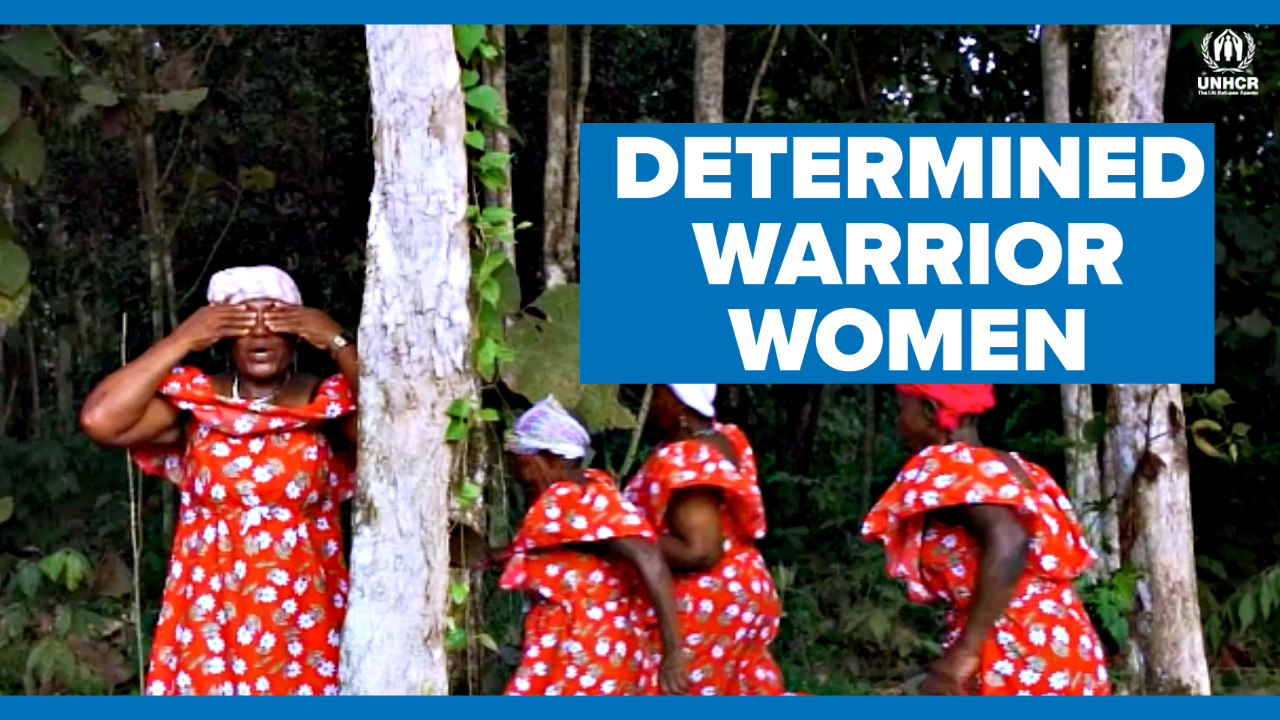Reggae rhythms rock eastern Nepal refugee camp on World Aids Day
Reggae rhythms rock eastern Nepal refugee camp on World Aids Day

BELDANGI I REFUGEE CAMP, Nepal, December 1 (UNHCR) - This corner of eastern Nepal met the Caribbean on Friday as thousands of refugees and locals joined people around the globe in marking World Aids Day.
"It's only you and I who can bring this change, It's only you and I who can try," sang Jerry Julian before a sea of people wearing red ribbons at the HIV/AIDS awareness concert organised by UNHCR and the UN World Food Programme.
"This concert is the first of its kind in the refugee camps in Nepal, and has brought the refugees and locals together to fight against HIV/AIDS," said Kaoru Nemoto, head of the UNHCR sub-office in the nearby town of Damak as Julian from the Dominican Republic carried the crowd with his reggae rhythms.
An open-air recreation area was used to stage the three-hour concert at Beldangi I, one of seven camps in eastern Nepal that house some 106,000 refugees originating from neighbouring Bhutan. Julian played with his own band as well as musicians from the refugee and local communities.
"Refugees and Locals: one voice against HIV. Know AIDS, no AIDS," said one banner flanking the makeshift stage. Dances, songs and short dramas were also performed to raise awareness about the deadly disease.
In Geneva, High Commissioner António Guterres said in a staff message on Friday that the refugee agency had significantly expanded its involvement in the fight against HIV and AIDS and noted that UNAIDS last year designated UNHCR as the lead coordinating agency for refugees and internally displaced persons.
"UNHCR has made progress over the past few years, but we must have no illusions about a global phenomenon that is still spreading at the rate of one new case every two seconds," he said. "The theme for World AIDS Day this year - Stop AIDS. Keep the Promise - is therefore very appropriate. There is still much to be done to honour that promise. We cannot turn a blind eye to HIV and AIDS, nor to our duty to fight it."
Guterres's message and the awareness concert at Beldangi came as the Nepalese government, UNHCR and other UN agencies, and non-governmental organisations (NGO) wrapped up a landmark 12-day HIV-AIDS assessment mission of conflict-affected populations, including displaced persons, in Nepal.
"Although no direct link between increased HIV infection and conflict has been found, possible associations were identified between conflict and increased HIV vulnerability and risk," said Paul Spiegel, head of UNHCR's HIV unit.
"Thus there is a need for improved coordination among government, NGOs and UN agencies working in HIV and AIDS activities and the establishment of stronger protection mechanisms for the most vulnerable in conflict-affected settings," he added.
Nepal has been wracked since 1996 by a Maoist insurgency, but the rebels struck a peace deal with the government last year. The mission found that the effects of the conflict may have led to an increase in migration, especially for younger men who are recognised as a group with increased vulnerability to HIV.
Women and children, who often make up the most vulnerable group affected by conflict the world over, have also suffered in Nepal.
Meanwhile, participants at Friday's concert were encouraged to undergo regular medical checks. "We encourage all, refugees and locals, to come forward for voluntary counselling and testing for HIV/AIDS," said Nirmal Rimal, a doctor with the Association of Medical Doctors of Asia, a UNHCR implementing partner. A mobile unit provided free testing and counselling at the concert.
The UN refugee agency has done much to inform the refugees about the dangers of HIV/AIDS through programmes and initiatives implemented by its NGO partners. Additionally, condoms are easily available in the camps and information leaflets and posters are found at various locations in the camps.
"I believe that we can make a difference if we commit ourselves to fight against this deadly disease," concluded refugee Ram Subedi.
By Nini Gurung in Baldangi I, Nepal








